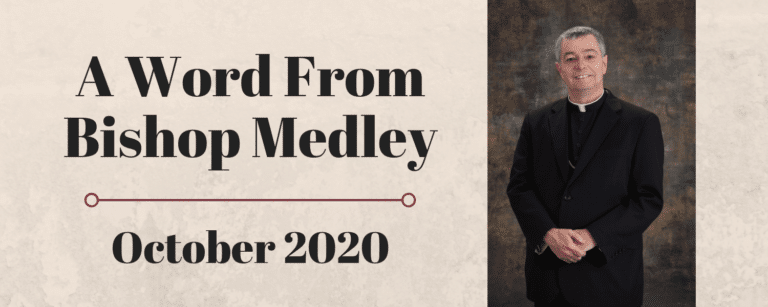
Apart from Mary, Mother of God, perhaps no other saint venerated by the Church is as well recognized as Francis of Assisi whose feast day is celebrated on October 4. In fact, given a tradition of blessing animals on this feast, you may find numerous Protestant churches adopting this practice as a celebration of all of God’s creation.
Francis was born in 1182 in Assisi while his father, who was a prosperous cloth merchant, was travelling through France. As was the custom his devout mother took him took to the church to be baptized within days and gave him the name Giovanni to honor St. John the Baptist. His father, though not a pagan, was not an especially religious man and subsequently changed his son’s name to Francesco reflecting his love of France. In the day the name would have been the equivalent of Frenchman.
Francis enjoyed the good life as the son of a successful merchant. It seems he was blessed with a positive disposition and we might say he was the life of the party among his peers. For the most part this was reflected in his many friends and his generous spirit with them, but it also likely indicated a bit of mostly harmless foolishness.
Francis’ conversion to the austere religious practice and lifestyle he embraced came slowly and in stages. One might say he would be an excellent patron saint for those discerning a calling in life. Few experience the sudden conversion of a St. Paul, struck down as he was thundering against early Christians. Most of us reflect upon our lives and recall the subtle signposts the Lord has provided along the way, as he did for Francis.
Among Francis’ signs was the experience of being a soldier and serving as a prisoner of war for a year. His encounter with a leper, feared and despised by most, represented a sign. Francis relates that though repulsed by the appearance and smell, he stopped to touch the leper but as he went on he turned back and no longer saw him. Francis saw this as a test from God.
As he matured, Francis did become more reflective and more intentionally a religious person. One day he stopped in an old and largely abandoned church to pray. The church was San Damiano and still had within it an image of the crucified Lord. While praying there he heard Christ on the crucifix speak to him, “Francis repair my church.” Acting impetuously Francis took cloth from his father’s shop and sold it to physically repair the church. Needless to say his father considered this theft and took his son to the bishop for correction. The bishop treated him kindly, telling Francis to repay what he had taken and to trust that God would provide.
Through this experience Francis came to understand the admonition to repair the church did not mean the physical structure, but rather the Lord was calling up a prophet to live the Christian life radically.
Soon Francis began to preach. He never wanted to establish a religious order but his simplicity of life and message attracted others. His message was simple: live by the Gospel. The story is told that one day a thief stole a hood from one of his companions and Francis exhorted him to run after the thief to offer him his robe as well.
Francis came to appreciate God in all creation. It is said that he preached among the birds and reasoned with a wolf terrorizing a village. Even in his lifetime scores of men chose to follow the way of life Francis had adopted. A dear friend of his, Clare, was inspired by his way and women joined her in a religious life.
Francis is the patron saint of animals and environment. As young people study the saints many young men and women are inspired and choose Francis as a confirmation saint.
Cardinal Jorge Bergoglio, then Archbishop of Buenes Aires, recounts the story of being in the conclave to elect a new pope, and it was becoming clear after several ballots that he was to be elected, that the cardinal next to him whispered to him, “Jorge, do not forget the poor.”
A few minutes later Jorge told the College of Cardinals that he would accept the office entrusted to him and that he would take the name Francis.
Most Reverend William F. Medley
Diocese of Owensboro
Originally printed in the October 2020 issue of The Western Kentucky Catholic.
Copyright © 2020 Diocese of Owensboro/The Western Kentucky Catholic

